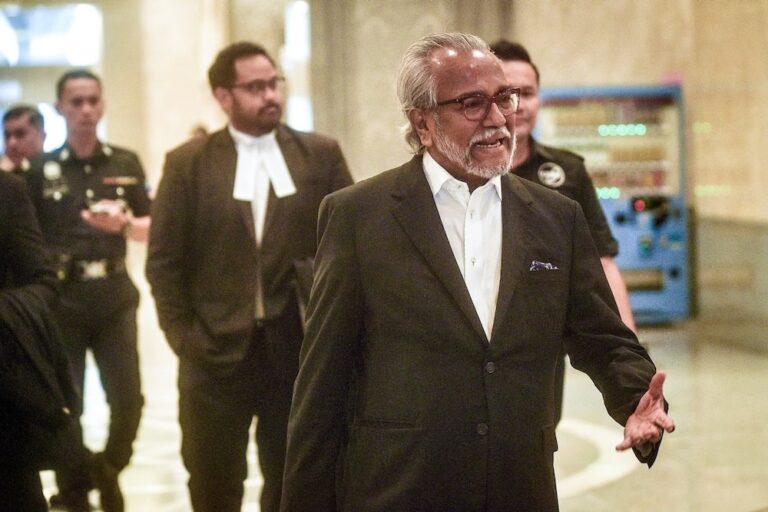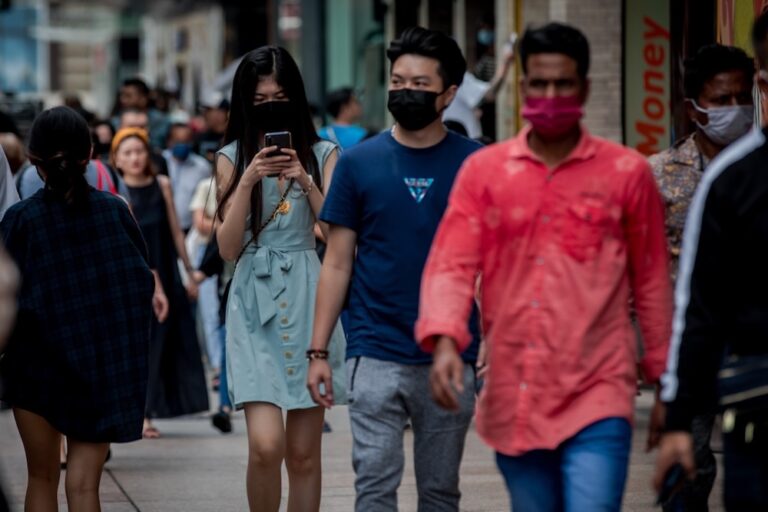(SEAPA/IFEX) – Malaysian authorities have instructed the local media not to give coverage to a rally calling for free and fair elections, to be held on 10 November 2007 in the capital city Kuala Lumpur, reports the Centre for Independent Journalism (CIJ), a SEAPA partner in Malaysia. [Editor’s note: the rally took place on 10 […]
(SEAPA/IFEX) – Malaysian authorities have instructed the local media not to give coverage to a rally calling for free and fair elections, to be held on 10 November 2007 in the capital city Kuala Lumpur, reports the Centre for Independent Journalism (CIJ), a SEAPA partner in Malaysia. [Editor’s note: the rally took place on 10 November and was broken up by police.]
The mainstream media – which are largely under government control through ownership and restrictive laws – were also ordered to report only the authorities’ views and to refrain from highlighting the rally or publishing the organisers’ statements, reports the sole independent web-based daily “Malaysiakini”.
The Information Minister Zainuddin Maidin recently told the media in a special meeting with editors that they need not report the truth – especially news that paints the government in a bad light. According to a 12 October “Malaysiakini” report, the minister said that, under the instruction of Prime Minister Abdullah Ahmad Badawi, he would be giving such “advice” to the media regularly.
As the prime minister has vowed to crack down on the rally, organised by the Coalition for Free and Fair Elections, the government’s latest order to the media, which has the obvious intention of preventing public knowledge about the event, bodes ill.
The government’s outright hostility to the rally is all the more menacing as a past public talk on electoral reforms, which was to have been held on 9 September in Batu Buruk town in the state of Terengganu by the same organisers, could not begin after clashes broke out between the police and the participants, during which police shot into the crowd, injuring two people. A journalist from opposition Internet broadcaster TV PAS was arrested, along with 22 others in the following weeks. According to CIJ, media reports of the clashes were biased toward the police, with little mention of the organisers’ side of the story.
The organisers, a coalition of 67 civil society groups and five opposition parties, came together to address a flawed electoral system that has resulted in a one-party state since 1955. According to an independent analysis, in the 2004 general election, one vote for the ruling coalition equalled three for the leading opposition party, eight for the next and 26 for the third.
At least 10,000 campaign supporters are expected to assemble at the Independence Square in the heart of the capital city at 3:00 p.m. (local time) before marching to the National Palace about 2.5 kilometres away to petition to the King for four electoral reforms: i.e., the use of indelible ink, clean-up of the electoral roll, abolition of domestic postal voting, and fair access to the media. CIJ Executive Director V. Gayathry will be among those in the delegation leading the crowd.
Rallies are rare in Malaysia as the constitutional guarantee for freedom of assembly under Article 10 is limited by harsh freedom of assembly laws, most infamous of which is the 1967 Police Act, which requires a permit for gatherings of more than three people. Opposition and civil society groups often choose to disregard this law, insisting on exercising their right to peaceful assembly as a democratic way of getting their voices “heard” in the country’s restrictive media environment.
The last time large numbers of people came out to protest was in May 2006, over fuel price hikes. Coverage in the mainstream media was muted, as it had been for protests building up in the months before, following a media blackout order from the government. Police dispersed the crowds by shooting chemical-laced water at them, beating them with batons and canes, bringing in dogs to intimidate them and riding horses into them. An inquiry by the Malaysian Human Rights Commission into police conduct at one particular demonstration later found there was “excessive force” used to disperse peaceful protesters and that “the arrests made were disproportionate to the aims of preventing disorder and protecting the rights of other and are not necessary in a democratic society”.
Ironically, citing concerns of disturbance to public order, the police rejected the permit for the 10 November 2007 gathering. The capital city’s police chief, Zulhasnan Najib Baharuddin, warned the public to stay away from the rally or risk legal action. The police planned to deploy about 4,000 officers to disperse the crowd and set up roadblocks to prevent people from going to the square. Roadblocks were already appearing on 9 November on major roads into the city in an apparent move to stop people from other states, bused in by the opposition parties, from joining the rally.
State-owned television stations have been running clips of violent demonstrations in other parts of the world, including the 9 September riot in Batu Buruk. One such clip ends with the warning: “Demonstrations will only bring violence”.


